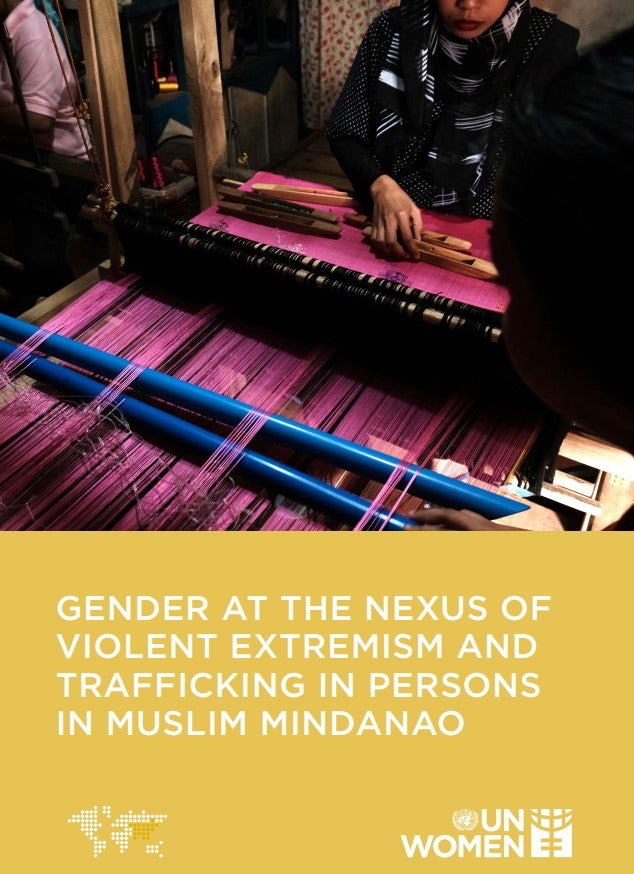
Gender at the Nexus of Violent Extremism and Trafficking in Persons in Muslim Mindanao

The linkages between organized crime, including trafficking in persons, and violent extremism are a global concern. These linkages are starting to receive some attention, but this is limited to specific conflict contexts such as Iraq and Syria. In recognition of the link between violent extremism and trafficking in persons and the gendered nature of both, the UN Security Council adopted its first resolution on trafficking in persons in areas affected by armed conflict in 2016 (UNSCR 2331). But overall, there is little understanding of the relationship between violent extremism and trafficking in persons, or of how gender informs this interaction.
This report examines the gendered dimensions of the nexus of violent extremism and trafficking in persons in the context of the Philippines. In particular, it focuses on the ways in which the gendered context of violent extremism creates different vulnerabilities toward trafficking in persons. The links between violent extremism and trafficking in persons are particularly important to identify entry points for gender-specific interventions that can address both trafficking in persons and violent extremism, rather than reverting to siloed approaches.
The report builds on key informant interviews as well as existing research to unearth emerging trends and to specifically examine potential links between violent extremism and trafficking in persons, and the contribution of gender to each. At the same time, it examines how violent extremism and trafficking in persons have shaped the gender identities and gender relationships of affected populations.